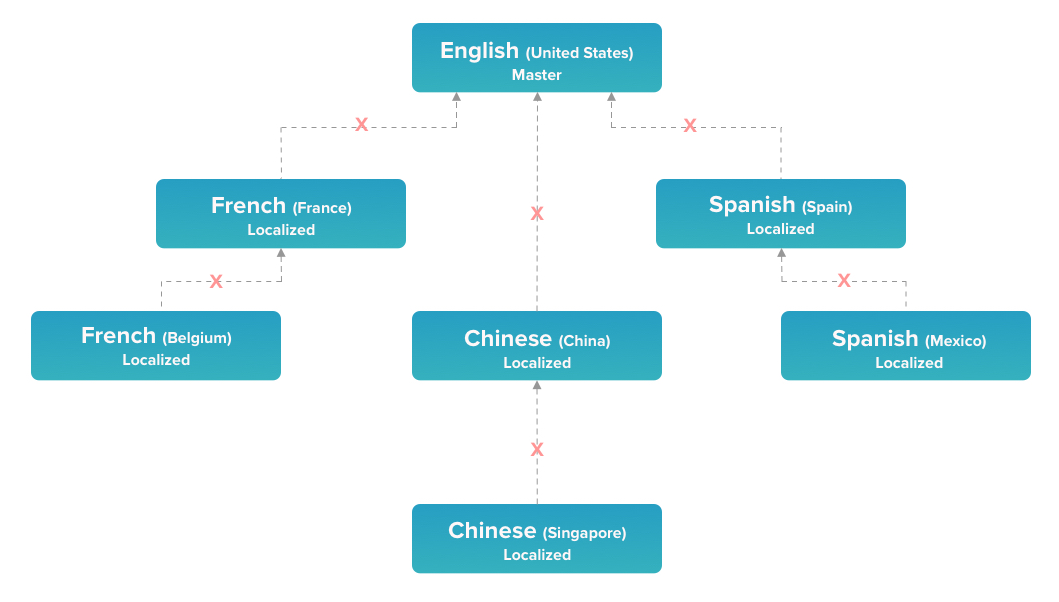Was this article helpful?
Thanks for your feedback
Localization is the process of making the content local. This means that the inheritance of the entry is broken from the fallback language and it, therefore, becomes independent.
We know that unlocalized entries fetch data from its fallback language. You can then translate the content or make the necessary changes and localize it. To localize an entry, you need to save the unlocalized entry.
Additional resources: You can refer to our documentation on how to localize an entry.
As shown in the following diagram, localizing an entry will cause the inheritance present between the master, fallback, and child entries to break, and an independent copy of the localized entry is created that will possess the same format of the master entry or fallback entry, but with different content.

This localized entry is now a separate entity altogether. It will have its own versioning system and publishing queue status.
Once an entry has been localized, you can unlocalize it again anytime.
To understand more about Localization, you can refer to the various documentations mentioned in our “More Articles” section
Was this article helpful?
Thanks for your feedback